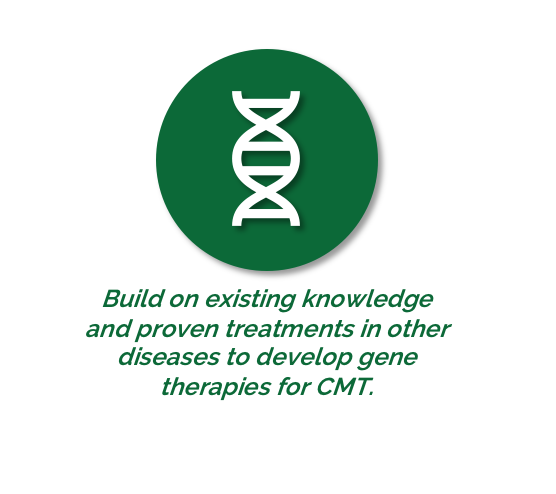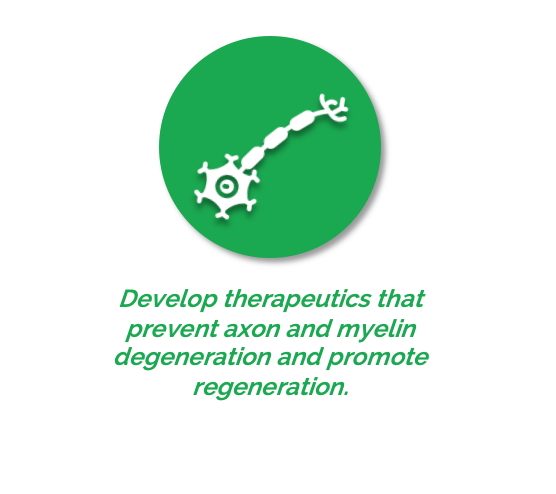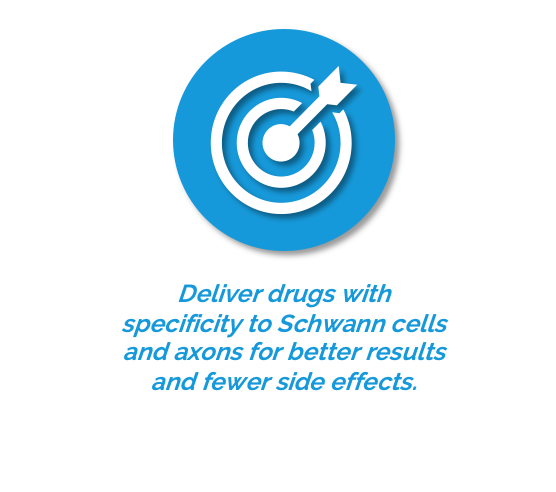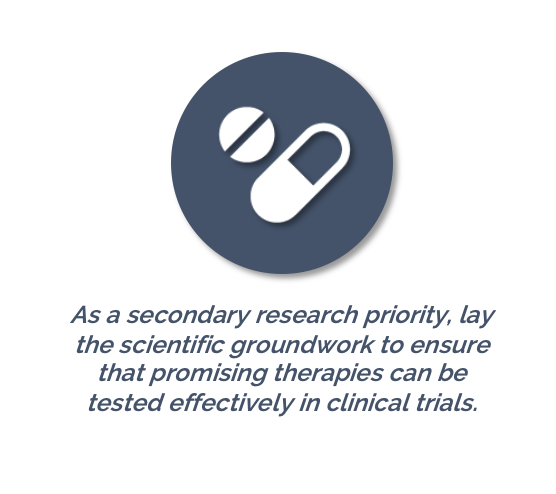CMT Research Foundation's Research Priorities
Understanding the biggest barriers in developing treatments for CMT and attacking them
The mission of the CMT Research Foundation is to deliver treatments and cures for CMT during our lifetime.
The CMT Research Foundation pursues this goal by identifying and bridging the gaps in biomedical research, with a focus on areas that are most likely to result in clinical treatments. We are most focused on translational research, but also fund discovery phase research with a clear link to speeding progress toward treatments and cures.
Research Priorities

Advancing Gene Therapy
Objectives:
- Control the expression of genetic causes of CMT through gene editing, silencing, epigenetics, splice modification, and other approaches, including both gene therapy and small molecule approaches
- Understand and control modifier genes that impact disease severity and/or progression in CMT

Promoting Nerve Health
Objectives:
- Understand and pharmacologically control cellular and molecular pathways that affect axon health, including survival, regeneration, and target connectivity
- Understand and pharmacologically control cellular and molecular pathways that affect peripheral myelination, including Schwann cell survival and function

Overcoming the Delivery Challenge
Objectives:
- Understand and manipulate the peripheral nerve barriers (epineurium, perineurium, endoneurium, and blood-nerve barrier)
- Develop novel delivery mechanisms
- Refine existing delivery mechanisms

De-risking Clinical Trials (Secondary Priority)
Objectives:
- Increase the rigor of CMT research with an eye toward enhancing its drug development value
- Expand data and sample sharing in CMT research, including access for industry researchers
- Define the health economics of CMT, including global incidence/prevalence, economic burden, and effect of therapeutics
- Further the development of existing or novel outcome measures that respond rapidly to changes in disease progression and treatment
- Further the development of existing or novel biomarkers for disease progression, target engagement, and treatment response
For program-related or application submission inquiries, please visit our applications page, or email Erich Fasnacht at [email protected].
The program is open to transformative projects that may fall outside the scope of these areas. Please inquire further if your idea does not fit the focus area.
Address
4062 Peachtree Road
Suite A209
Atlanta, GA 30319
Phone Number
404.806.7180
